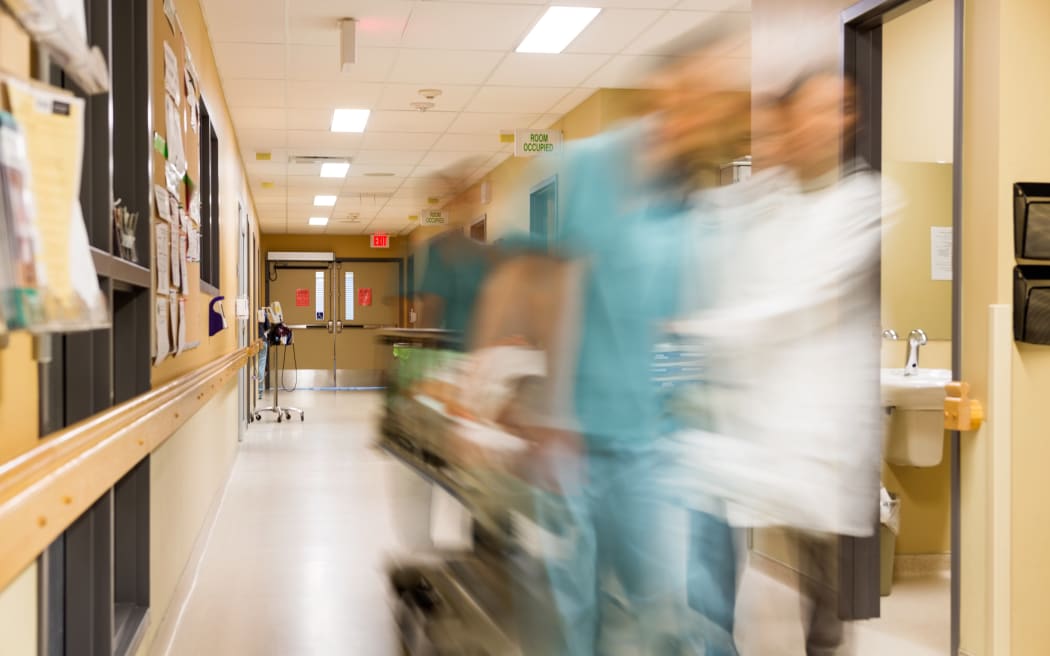An emergency specialist says the situation in hospitals is psychologically and physically exhausting.
College of Emergency Medicine deputy chair Dr Kate Allan said emergency departments around the country were slammed while patients were having to wait for a hospital bed due to unprecedented demand and staff shortages.
"The system is under unprecedented stress, it is not coping, it is chaotic and it's dangerous."
She told Checkpoint doctors and nurses were treating people in overcrowded emergency departments, so they were unable to deliver a safe level of care.
There was a risk that people could die in emergency departments as a result, she said.
"The amount of patient hours within the [emergency] department is at an unprecedented level, and it is the highest level we've seen for a very long time. So, the overall volumes may not speak the whole picture, it is also about the work that is happening within ED at the same time.
"So if you've ... got patients waiting to move to their next destination, then the people coming in overlap with those people unable to move out, and that would be a huge amount of patient hours that those nursing staff in particular are caring for."
There were not enough beds or staff for people in ED to move into inpatient beds, Allan said, and some people were wait for more than 24 hours.
"The health minister has been told of the situation and he is aware of the situation within the emergency department.
"It's horrible pressure. In all honesty, it's not a nice environment to work in and the staff are stressed, but they're doing their best in a really difficult situation. It's psychologically and physically exhausting."
She said it was fantastic that Counties Manukau DHB was directing some people towards GPs for a free visit.

Photo: 123rf
While those seeking primary level care did hold up queues in the ED, she said, they were not the problem - it was access to inpatient beds.
The ministry needed to work with hospitals on shorter-term solutions, increase access to diagnostics, and get more support from Allied Health Services, she said.
Previously, Minister of Health Andrew Little said there was a need for more involvement from the allied health workforce like nurse practitioners, to take some of the burden from GPs' workload.
"This is just a really difficult environment where you've got multiple demands on a workforce. There's too many patients for too few staff and so that makes it a chaotic environment."

